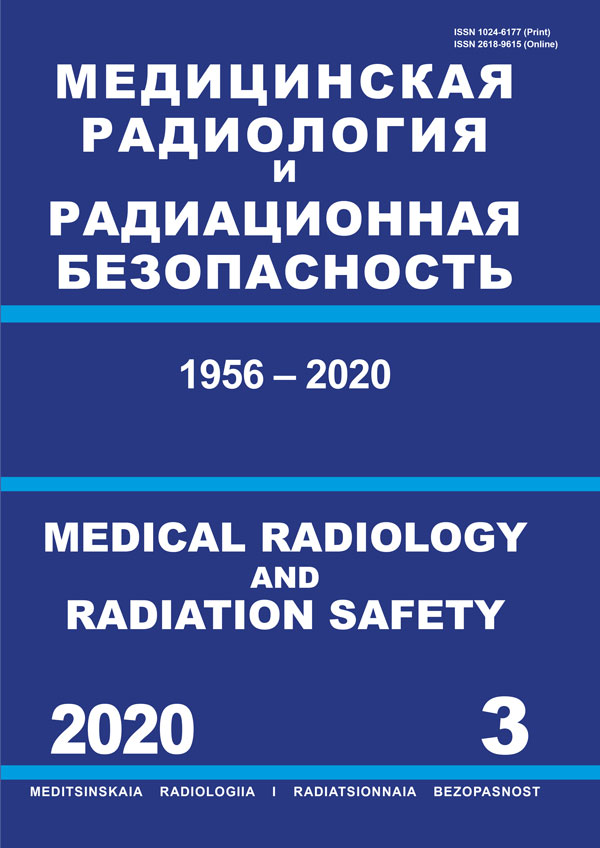Russian Federation
Russian Federation
Russian Federation
CSCSTI 76.03
CSCSTI 76.33
Russian Classification of Professions by Education 14.04.02
Russian Classification of Professions by Education 31.06.2001
Russian Classification of Professions by Education 31.08.08
Russian Classification of Professions by Education 32.08.12
Russian Library and Bibliographic Classification 51
Russian Library and Bibliographic Classification 534
Russian Trade and Bibliographic Classification 5708
Russian Trade and Bibliographic Classification 5712
Russian Trade and Bibliographic Classification 5734
Russian Trade and Bibliographic Classification 6212
Purpose: Due to the necessity of improving the education of medical workers it is vital to conduct a review of the current state of training for work associated with the use of high-tech equipment and the use of radiopharmaceuticals for nuclear medicine. Results: To ensure the availability of modern, high-quality medical care, oriented to world standards, it should be considered that the necessary conditions are based not only on the development of medical science and technology, material and technical equipment, but also on the provision of highly qualified personnel with a certain set of competencies. Currently, the training and professional development of personnel for this area is carried out at all levels of vocational education: secondary and higher in accordance with the Lists of specialties and areas of vocational education. At the same time, the issues of developing and approving relevant professional standards and Federal state educational standards (FSES) for the needs of nuclear medicine remain unsolved, which in turn is one of the factors that reduce the demand for specialists in this field in the labor market. At the same time, the issues of developing and approving relevant professional standards and FSES for the needs of nuclear medicine remain unsolved, which in turn is one of the factors that reduce the demand for specialists in this field on the labor market. The personnel crisis is overcome due to the implementation of additional professional programs and practical training at the bases of leading scientific, clinical and educational institutions that are leaders in the field of nuclear medicine and radiopharmaceuticals. Conclusion: In order to address the shortage of personnel for such a booming industry, a clear coordinated plan is needed, which would include systematic measures to train personnel both at the undergraduate level and to improve already prepared specialists. In addition, it is necessary to prepare a pool of highly qualified faculty for training specialists of a new formation. It is necessary to create federal educational standards taking into account that the current state of medical science and on the basis of professional standards. Work in this direction can be successful only if all stakeholders are actively involved: educational organizations, the professional community and government structures. At the same time, it is an obvious fact that, before the adoption of professional standards and the FSES, the available experience of leading scientific and educational organizations in the training of specialists should be adopted and they should receive support and development.
nuclear medicine, training





